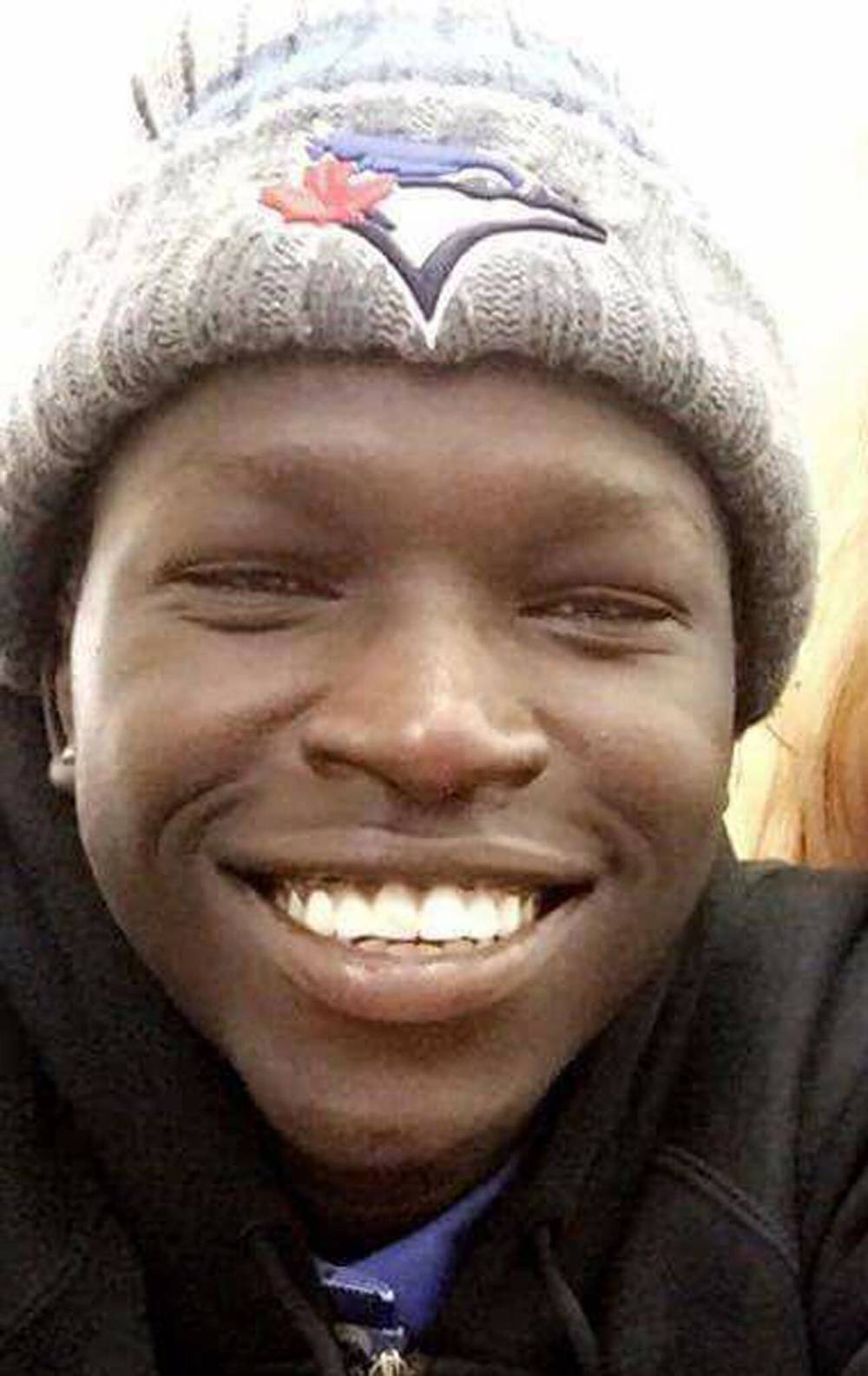Murder conviction in ‘rage-fuelled’ 2020 slaying of taxi driver
Advertisement
Read this article for free:
or
Already have an account? Log in here »
To continue reading, please subscribe:
Monthly Digital Subscription
$0 for the first 4 weeks*
- Enjoy unlimited reading on winnipegfreepress.com
- Read the E-Edition, our digital replica newspaper
- Access News Break, our award-winning app
- Play interactive puzzles
*No charge for 4 weeks then price increases to the regular rate of $19.00 plus GST every four weeks. Offer available to new and qualified returning subscribers only. Cancel any time.
Monthly Digital Subscription
$4.75/week*
- Enjoy unlimited reading on winnipegfreepress.com
- Read the E-Edition, our digital replica newspaper
- Access News Break, our award-winning app
- Play interactive puzzles
*Billed as $19 plus GST every four weeks. Cancel any time.
To continue reading, please subscribe:
Add Free Press access to your Brandon Sun subscription for only an additional
$1 for the first 4 weeks*
*Your next subscription payment will increase by $1.00 and you will be charged $16.99 plus GST for four weeks. After four weeks, your payment will increase to $23.99 plus GST every four weeks.
Read unlimited articles for free today:
or
Already have an account? Log in here »
Hey there, time traveller!
This article was published 14/03/2023 (1011 days ago), so information in it may no longer be current.
A Winnipeg man who was in the grip of bipolar disorder when he fatally stabbed a city taxi driver 17 times has been found guilty of second-degree murder.
Lawyers for Okoth Obeing had argued he was so mentally ill, he should be found not criminally responsible for killing 44-year-old Balvir Toor on March 19, 2020.
Court of King’s Bench Justice Joan McKelvey rejected the defence, writing in a 68-page decision released Tuesday that Obeing knew what he did was wrong.

Okoth Obeing
“An innocent man, Balvir Toor, was stabbed to death as a result of the accused’s rage-fuelled actions,” McKelvey said.
“I am satisfied after a consideration of the NCR case law and tests established, along with the evidence presented, that the accused at the time of the stabbing appreciated the nature and the quality of the act at the time of the stabbing, appreciated the nature and quality of his act and the natural consequences that would flow from it.”
Obeing, 23, will be sentenced at a later date. The minimum sentence for second-degree murder is life in prison with no chance of parole for at least 10 years.
Attack recorded by cab security camera
Toor was stabbed to death in his cab as he pulled over on the 500 block of Burrows Avenue. Prosecutors argued at trial the killing was driven by Obeing’s racist attitude toward people of South Asian descent and a “dislike of cab drivers” who “disrespected” him by asking for money up front.
Video of the attack, which was recorded by a cab security camera, showed Obeing in the rear driver’s-side seat engaged in an angry verbal exchange with Toor.
“Shut the f—k up before I kill you,” Obeing told Toor, before seemingly calming down and telling him to “Just drive, bro.”
Seconds later, Obeing slid over to the rear passengers-side seat, reached around the driver’s protective shield and stabbed Toor 17 times in the arm and upper body. Then, he ran from the vehicle.
In a subsequent police interview, Obeing claimed he gave Toor $60 up front for the fare and became angry when Toor wouldn’t give him back $10.
“I had enough,” he said. “That was my last $60.
“It was money first, money first. I didn’t even f—king give him the address yet.”
Defence cites intellectual disability, bipolar disorder
Dr. Jeffrey Waldman, a forensic psychiatrist called by the defence, testified at trial Obeing met the criteria for a not criminally responsible ruling, finding due to his bipolar disorder, Obeing “did not have conscious thought and control” of his actions at the time he stabbed Toor.
Court heard Obeing was experiencing manic episodes when he admitted himself to St. Boniface Hospital on Feb. 25, 2020. When he was released March 11, nine days before the killing, Obeing had not been properly medicated, Waldman testified.
Obeing has been diagnosed with an intellectual disability, which would have further compromised his ability to control his actions while suffering a manic episode, Waldman said.
Crown prosecutors Chantal Boutin and Monique Cam argued Waldman’s testimony be given little weight, saying his forensic assessment made conclusions not supported by the evidence of other trial witnesses and Obeing’s own comments before and after the killing.
Waldman attributed Obeing’s actions to his mania, Boutin said, but did not question him about the killing or his state of mind at the time.
“Dr. Waldman saw the evidence only one way… and avoided all the evidence that would call that conclusion into question,” Boutin said in a closing argument in December 2022, describing Waldman at one point as Obeing’s “third lawyer.”
Boutin said Obeing provided clear evidence he knew what he did was wrong when, after stabbing Toor to death, he ran away “with Olympic speed,” ditched the murder weapon in a garbage bin, and washed Toor’s blood from his hands.
dean.pritchard@freepress.mb.ca

Dean Pritchard is courts reporter for the Free Press. He has covered the justice system since 1999, working for the Brandon Sun and Winnipeg Sun before joining the Free Press in 2019. Read more about Dean.
Every piece of reporting Dean produces is reviewed by an editing team before it is posted online or published in print — part of the Free Press‘s tradition, since 1872, of producing reliable independent journalism. Read more about Free Press’s history and mandate, and learn how our newsroom operates.
Our newsroom depends on a growing audience of readers to power our journalism. If you are not a paid reader, please consider becoming a subscriber.
Our newsroom depends on its audience of readers to power our journalism. Thank you for your support.








